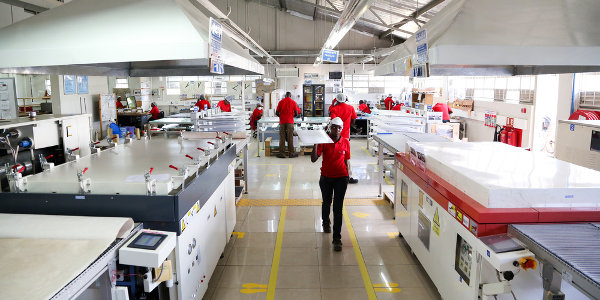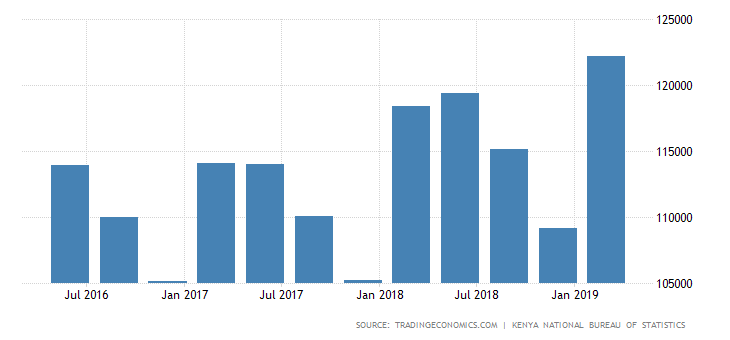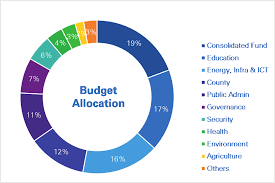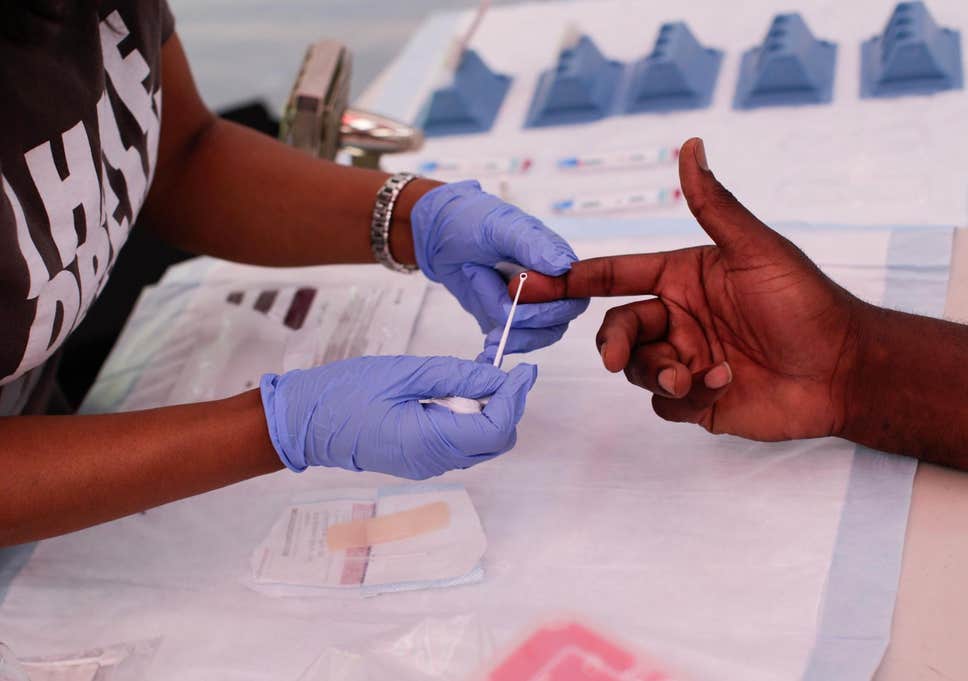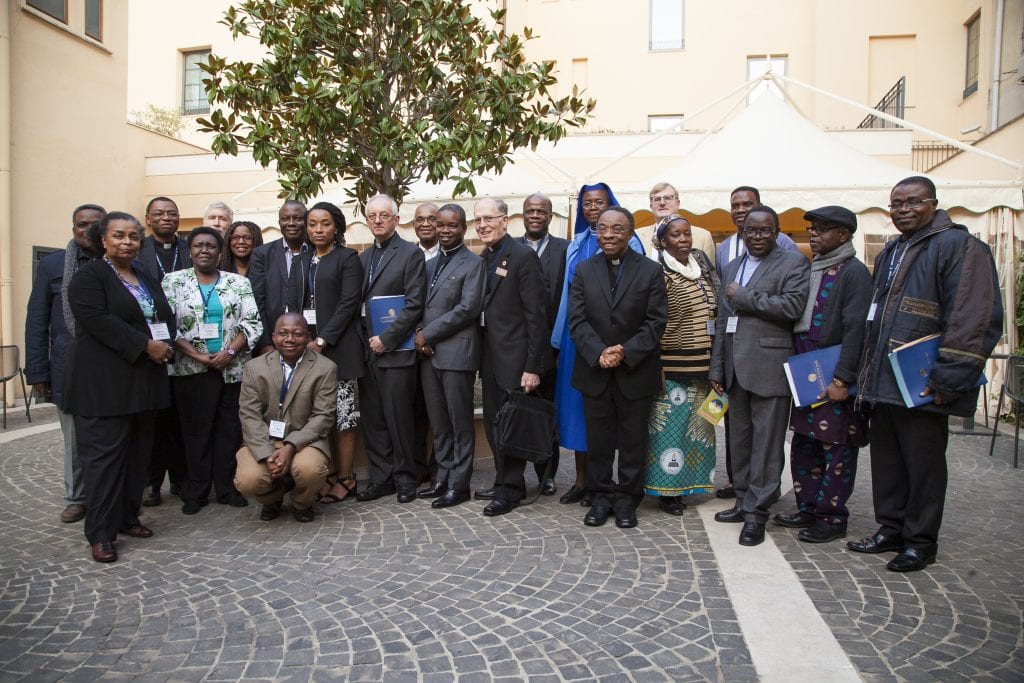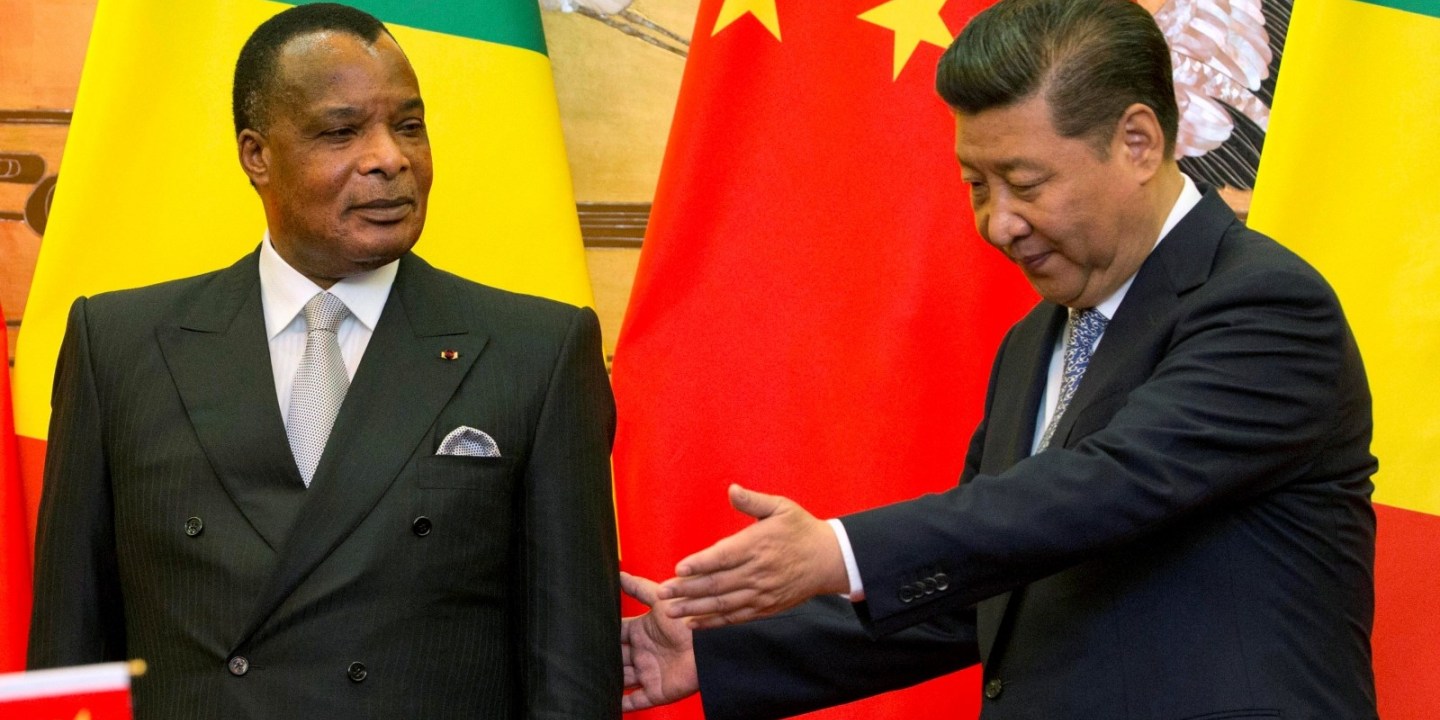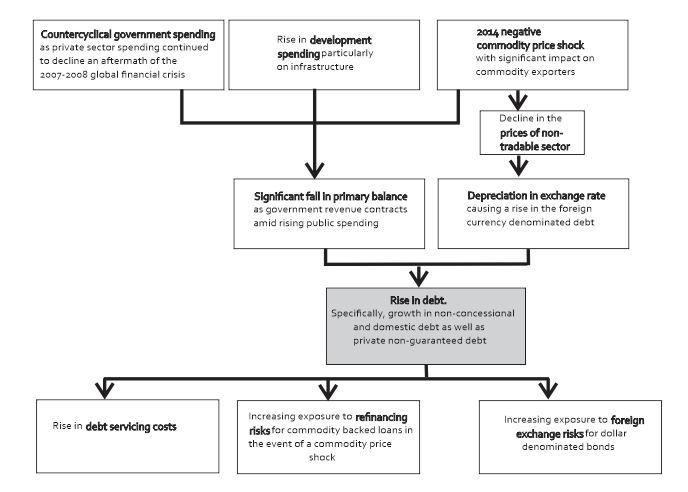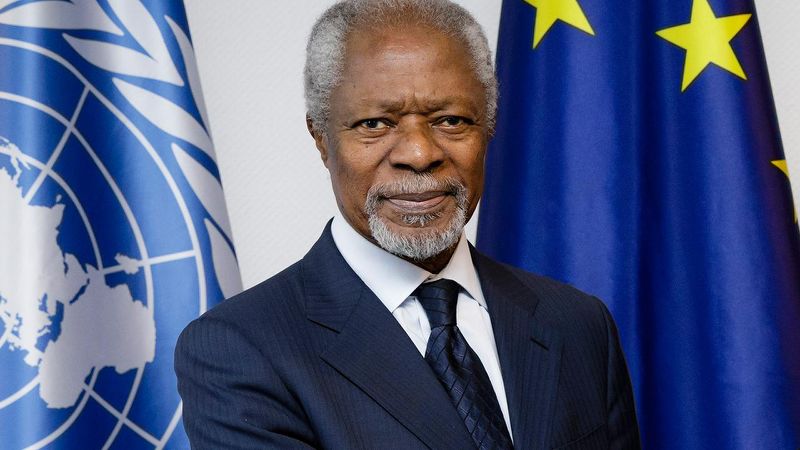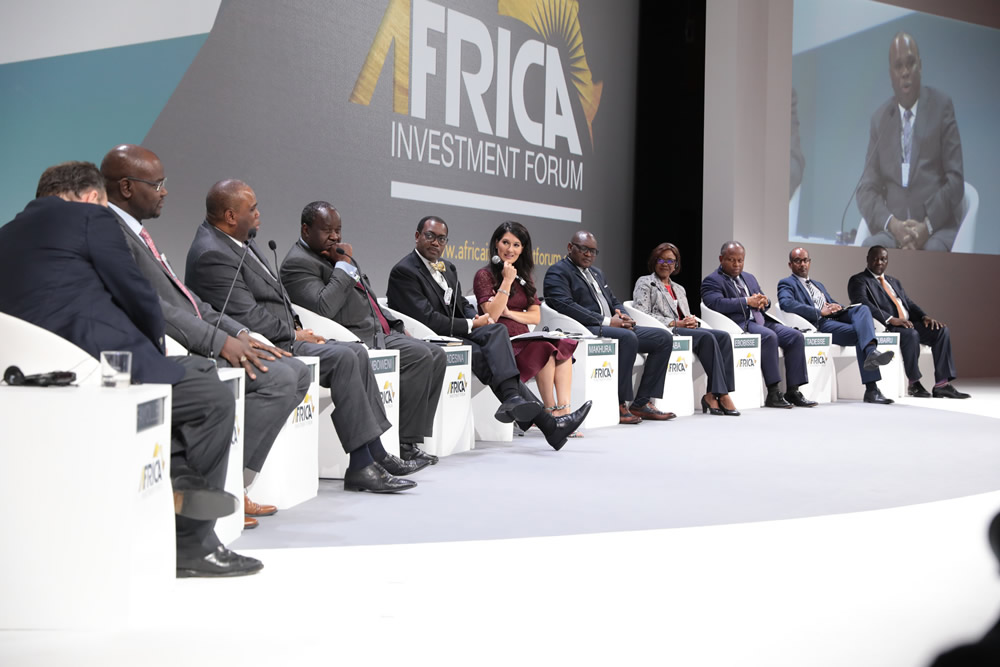Forbes Africa Releases Names of Outstanding Young Africans Under 30 Years
Forbes Africa 30 Under 30 List features 120 of Africa’s brightest achievers under the age of 30 in four categories: business, technology, creatives, and sport. The list celebrates pioneers who are building brands, creating jobs, innovating, leading, transforming and contributing to new industries and ultimately impacting positively on the continent.
This year is the fifth issue of the annual Forbes Africa 30 Under 30 List.
The publication features 120 young and dynamic individuals across four sectors, namely business, technology, creatives, and sport.
“Meet the class of 2019, a stellar collection of entrepreneurs and innovators rewriting rules and taking bold new risks to take Africa to the future,” the publication explains.

Jason Pau, chief of staff for billionaire Jack Ma, co-founder of Alibaba Group, told Forbes that the journey for young entrepreneurs, especially in Africa, is not always easy.
Many start-ups fall by the wayside due to a lack of resources. In South Africa, it is estimated that the small enterprise failure rate is at almost 80% within the first three years.
The select few celebrated in this list represent those individuals who continue to persevere against the odds. It also serves as a reminder that it is possible. However, not only does the list look at the financial impact of each candidate but also their reputation, resilience, and ability to be role models to other young Africans.
Sport is the newest category, opening up the list to the game changers and Africa’s next generation of leaders. Individuals in this category have “won awards, broken records, made social investments and pushed the boundaries by challenging the status quo on policies in sports,” the Forbes team stated, adding that “some of the challenges they still face include lack of resources, a gender pay gap and an immense pool of untapped talent not yet given a chance to be in the limelight.”
Below are the lists of Africa’s30Under30 individuals in each category:
Business Category 2019
- Bruce Diale, 29, South Africa – Founder and Managing Director: Brucol Global Development
- Terence Mathe, 29, Zimbabwe – Co-founder: Southern Incineration Services (SISCO) PBC
- Mariam Manack, 29, South Africa – Founder and Director: iTrain
- Khanyisile Madonko-Nderezina, 25, Zimbabwe – Co-founder and CEO: Sakhile Madonko Enterprises
- Isaac Mbatha, 28, South Africa – Founder and CEO: Sky Tents SA
- Sadaam Suleiman, 28, Kenya – Co-founder and Managing Director: DragonFly Limited
- Adeniyi Omotayo, 28, Nigeria – Founder and CEO: Betensured Group
- David Kyalo, 29, Kenya – Founder and CEO: Koncepts & Events Ltd
- Ogechukwu Anugo-Obah, 28, Nigeria – Founder and CEO: BodyLikeMilk
- Dorn Ndlovu, 26, South Africa – Founder and CEO: Entrepreneur Blueprint Africa
- Busi Mkhumbuzi Pooe, 24, South Africa – Co-founder and Chief Executive: Tshimong
- Sydney Sam, 26, Ghana – Founder and CEO: Workspace Global
- Shirlene Nafula, 27, Kenya – Founder and CEO: Crystal River Products
- Kgahlego Rasebotsa, 29, South Africa – Founder and Director: Interior Bubble
- Kimani Adam, 29, Kenya – Co-founder and CEO: Nature Expeditions Destination Management
- Ijeoma Balogun, 29, Nigeria – Founder and Managing Director: RedrickPR
- Bright Jaja, 29, Nigeria – Founder and CEO: iCreate Africa
- Jesse Carlton Happy Ndongo, 27, Cameroon – General Manager: Easy Group
- Henrich Akomolafe, 26, Nigeria – Co-founder and Managing Director: Akotex Nigeria Limited
- Lesego Mokae, 29, South Africa – Co-founder: Ditsogo Projects
- Oginni Tolulope, 29, Nigeria – Founder and CEO: Transfurd Limited
- Theo Baloyi, 29, South Africa – Founder and CEO: Bathu Swag
- Avthar Aniruth, 21, South Africa – Founder and Executive Producer: Audience Networks
- Barbara Okereke, 28, Nigeria – Cake Designer, Founder, and Managing Director: Oven Secret Limited
- Jessica Anuna, 27, Nigeria – Founder and CEO: Klasha
- Charles Edosomwan, 29, Nigeria – Founder and Chief Strategist: TekSight Edge Limited
- Charmaine Mbatha, 29, South Africa – Co-founder: Millennial Business Administrators
- Shaney Vijendranath, 28, South Africa – Co-founder and CEO: Vimage Media
- Adetola Nola, 28, Nigeria – Founder and CEO: Veritasi Properties Limited
- Caleb Stephen David, 27, South Africa – Founder and CEO: Versatile Commodity Traders
Creatives Category 2019
- Karabo Poppy Moletsane, 27, South Africa – Creative Illustrator, Street Artist, and Graphic Designer
- Rophnan Nuri, 29, Ethiopia – Electronic Dance Music Artist
- Henry Amponsah, 27, Ghana – Designer, Founder, and CEO: 101 Clothing
- Austin Malema, 28, South Africa – Photographer and CEO: Pixel Kollective
- Harmony Katulondi, 29, Democratic Republic of the Congo – Presenter, Model, Actor and Voice Over Artist
- Kapasa Musonda, 29, Zambia – Fashion Designer
- Richard Akuson, 26, Nigeria – Founder and Editor: A Nasty Boy
- Menzi Mcunu, 22, South Africa – Founder: Afrocentric Gentlemvn
- Trevor Stuurman, 26, South Africa – Photographer and Creative Director
- Burna Boy, 28, Nigeria – Musician
- Kim Jayde, 28, Zimbabwe – TV Presenter, Model, and MC
- Petite Noir, 28, Democratic Republic of the Congo – Singer, Songwriter, and Producer
- Aisha Baker, 29, South Africa – Businesswoman, Influencer and Style Icon
- Karun, 24, Kenya – Musician
- Gilmore Moyo, 29, Zimbabwe – Creative Director, Fashion Facilitator, Former TV & Radio Host and Founder: Paper Bag Africa
- Boitumelo ‘Boity’ Thulo, 29, South Africa – TV Host, Entrepreneur, and Musician
- Hermann Kamte, 27, Cameroon – Architect, Founder, and CEO: Hermann Kamte & Associates
- Helen Chukwu, 25, Nigeria – Fashion Designer, Founder, and CEO: Helen Couture
- Luis Munana, 27, Namibia – Creative Director, Model, TV Host, and Founder: Voigush Africa
- Upile Chisala, 24, Malawi – Author and Poet
- Joseph Awuah-Darko, 22, Ghana – Contemporary Artist
- Joe ‘Human’ Nawaya, 25, the Democratic Republic of the Congo – Graphic Designer and Co-founder: Creative Mind Space
- Thando Thabethe, 29, South Africa – Actress, TV Presenter, and Radio DJ
- Rich Fumani Mnisi, 27, South Africa- Fashion Designer
- Kevin Njue 27, Kenya – Producer, Director, Writer, and CEO: Rocque Pictures
- Sho Madjozi, 27, South Africa – Musician
- Sarah Owusu, 28, Ghana – Artist and Painter
- Abisola Akintunde, 28, Nigeria – Founder and Creative Director: MakeupbyAshabee and Beelashes
- Yaa Bonsu, 28, Kenya – Fashion Stylist and Creative
- Paola Audrey Ndengue, 29, Cote d’Ivoire – Host and Producer and Co-founder: FASHIZBLACK
Technology Category 2019
- Nthabiseng Mosia, 28, Sierra Leone – Co-founder and CMO: Easy Solar
- Evans Akanno, 29, Nigeria – Founder and CEO: Cregital
- Michael Paul Mollel, 29, Tanzania – Co-founder and Executive Chairman: Jimz Technologies Co. Ltd
- Nureshka Viranna, 27, South Africa – Co-founder and Director: ShopLi
- Jacob Rugano, 29, Kenya – Co-founder and director: AfricarTrack International
- Fred Oyetayo, 25, Nigeria – Founder and CEO: Fresible
- Alpha Nury, 29, Senegal – Founder and CEO: Jamaa Funding
- Hansley Noruthun, 27, Mauritius – Founder: Mauritius Space and Science Foundation
- Schizzo Thomson, 29, Malawi – Founder and Managing Director: Sky Energy
- Vena Arielle Ahouansou, 25, Benin – Co-founder and CEO: KEA Medicals
- Damilola Olokesusi, 29, Nigeria – Co-founder and CEO: Shuttlers Logistics Company
- Diana Esther Wangari, 27, Kenya – Co-founder and Chief Medical Officer: Sagitarix
- Chinedu Azodoh, 29, Nigeria – Co-founder and Chief Growth Officer: Metro Africa Xpress (MAX)
- Shoriwa Shaun Benjamin, 29, Zimbabwe – Co-founder: Simba Solutions
- Karidas Tshintsholo, 24, and Matthew Piper, 25, South Africa – Founders: Khula App
- Courtney Bentley 29, South Africa – Co-founder and CEO: Vizibiliti Insight
- Josh Okpata, 27 and Tochukwu Mbanugo, 29, Nigeria – Founders: Eazyhire
- Muhammad Salisu Abdullahi, 28, Nigeria – Co-founder and Managing Director: eTrash2Cash
- Silas Adekunle, 26, Nigeria – CEO and Co-Founder: Reach Robotics
- Joshua Chibueze, 26, Somto Ifezue, 28, and Odunayo Eweniyi, 26, Nigeria – Founders: PiggyVest
- Uka Eje, 29, Nigeria – Co-founder and CEO: Thrive Agric
- Melissa Mwale, 29, Zimbabwe – Founder: Hive Incorporation, and Co-founder: CryptoGem
- Eric Muli, 27, Kenya – Founder and CEO: Odyssey Capital
- Eric Rutayisire, 28, Rwanda – Founder and CEO: Charis UAS
- Wissal Farsal, 27, and Khalid Machchate, 26, Morocco – Founders: K&W Technologies
- Tyrone Adams, 28, and Siyabonga Thomas Tiwana, 29, South Africa – Founders: Skywalk Innovations
- Chika Madubuko, 27, Nigeria – Co-founder and CEO: Greymate Care
- Dorcas Owinoh, 28, Kenya – Co-founder and Director: LakeHub
- Ndabenhle Ngulube, 28, Matthew Smith, 26, and Marnus van Heerden, 29, South Africa – Founders: Pineapple App
Sports Category 2019
- Clarence Munyai, 21, South Africa – Track and Field Athlete
- Jean Sseninde, 26, Uganda – Footballer and CEO
- Mohamed Salah, 27, Egypt – Footballer
- Wayde van Niekerk, 26, South Africa – Track and Field Athlete
- Chad le Clos, 27, South Africa – Swimmer
- Genzebe Dibaba, 28, Ethiopia – Track and Field Athlete
- Jacob Kiplimo, 18, Uganda – Track and field athlete
- Sara Ahmed, 21, Egypt – Weightlifter
- Luvo Manyonga, 28, South Africa – Track and Field Athlete
- Giana Lofty, 24, Egypt – Martial Arts practitioner
- Beatrice Chepkoech, 24, Kenya – Track and Field Athlete
- Patricia Apolot, 28, Uganda – Kickboxer
- Caster Semenya, 28, South Africa – Track and field athlete
- Emmanuel Korir, 24, Kenya – Track and Field Athlete
- Faith Kipyegon, 25, Kenya – Track and field athlete
- Francine Niyonsaba, 26, Burundi – Track and Field athlete
- Kagiso Rabada, 24, South Africa – Cricketer
- Ruhan van Rooyen, 24, South Africa – Paralympic Track and Field Athlete
- Sadio Mane, 27, Senegal – Footballer
- Sabrina Simader, 21, Kenya – Alpine skier
- Gerson Domingos,23, Angola – Basketballer
- Siya Kolisi, 28, South Africa – Rugby player
- Thembi Kgatlana, 23, South Africa – Footballer
- Pierre-Emerick Aubameyang, 29, Gabon – Footballer
- Aphiwe Dyantyi, 24, South Africa – Rugby player
- Percy Tau, 25, South Africa – Footballer
- Quinton de Kock, 26, South Africa – Cricketer
- Alex Iwobi, 23, Nigeria – Footballer
- Akani Simbine, 25, South Africa – Track and Field Athlete
- Margaret Nyairera Wambui, 23, Kenya – Track and Field Athlete
Kelechi Deca

Kelechi Deca has over two decades of media experience, he has traveled to over 77 countries reporting on multilateral development institutions, international business, trade, travels, culture, and diplomacy. He is also a petrol head with in-depth knowledge of automobiles and the auto industry.


